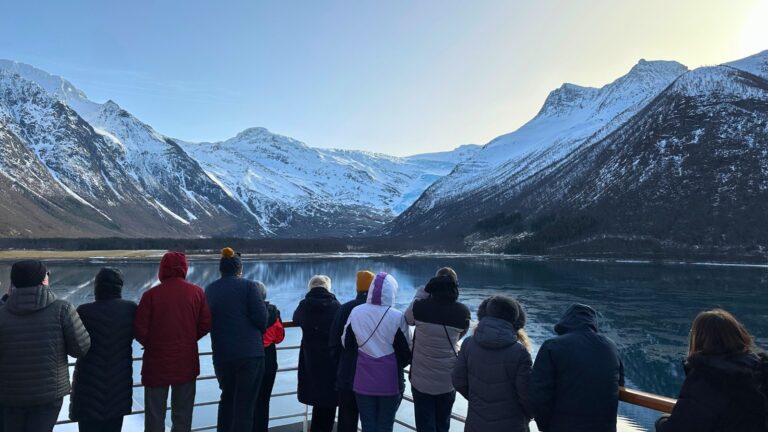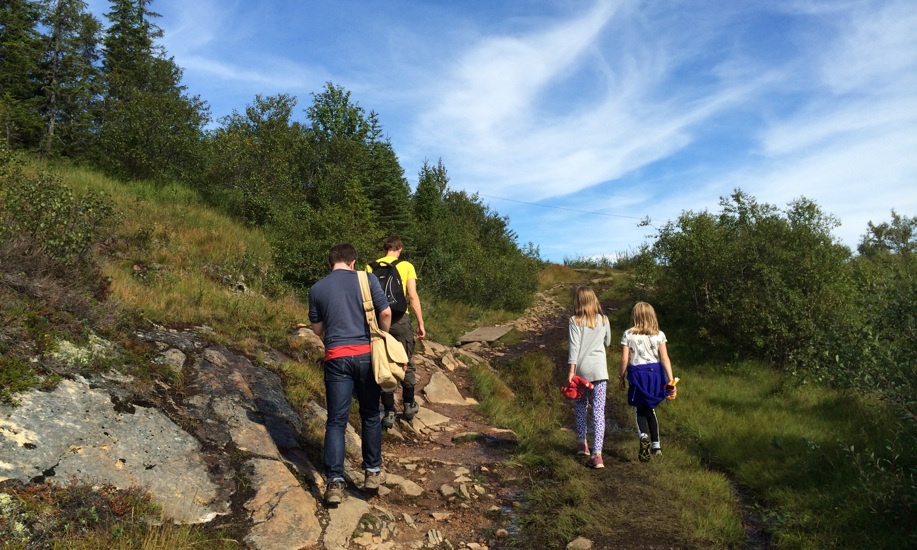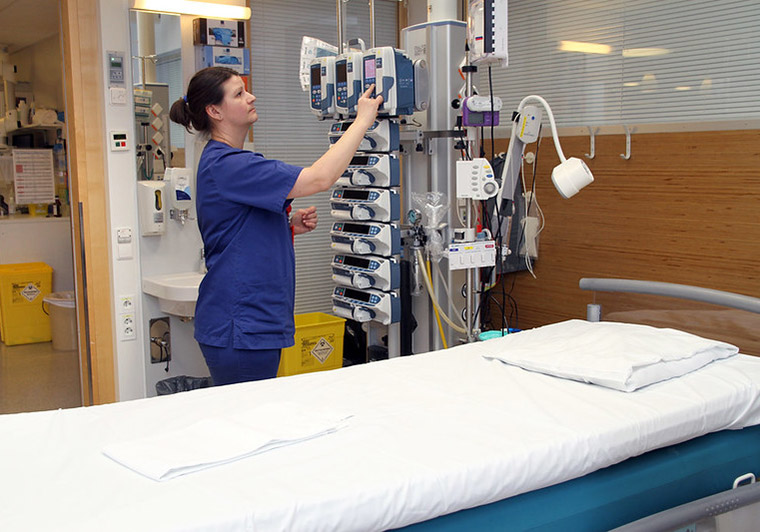Why do so many people from around the world want to move to Norway? From the lifestyle to job-related reasons, here are some of the factors.
Have you ever thought of moving to Norway? As you're on this website, chances are you have! Well, you're not alone. Norway is known for its breathtaking natural beauty, high living standards, and reputation as one of the safest countries on Earth.

From the rugged peaks of Lofoten to the tech scene in Oslo, this Scandinavian nation appeals to a wide variety of people seeking a fresh start.
Every year, thousands of individuals and families consider relocating to Norway. Some come for work, attracted by the fair wages, generous parental leave, and a more balanced lifestyle. Others move for education, relationships, or simply the opportunity to live in a society where equality, and sustainability are taken seriously.
Of course, moving to a new country is never easy, and life in Norway has its challenges — from a high cost of living to a famously reserved social culture. If you’re curious about the downsides, we’ve explored those in detail over here. But that’s only half the story.
In this article, we turn the spotlight on the positive side. We take a closer look at the things that continue to attract newcomers to Norway and convince many to stay.
Whether you’re in the early stages of planning a move or simply curious about what life here is really like, here are seven good reasons to consider making Norway your new home.
1. It’s a Great Place to Raise a Family
Norway consistently ranks as one of the best countries in the world to raise children, and for good reason. Generous parental policies, affordable childcare, high-quality education, and a safe environment all contribute to an ideal setting for family life.
Kindergarten (barnehage) is heavily subsidised and widely available, making it easier for both parents to return to work after the leave period.

Education is free and inclusive, and higher education including university is tuition-free for residents and EU/EEA citizens. Even non-EU students benefit from relatively low tuition fees compared to some countries.
Children are encouraged to be active and independent from an early age. Outdoor play and nature-based learning are central parts of childhood, both at school and in family life. Many schools incorporate hikes, ski trips, and forest days into the regular curriculum, supporting physical and mental development.
Towns and cities are designed with families in mind. You’ll find well-maintained playgrounds, sports facilities, nature trails, and libraries in even the smallest communities, often free or low-cost.
The result? A calmer, more balanced lifestyle where kids can thrive and parents are supported, both at home and in the workplace.
2. Excellent Work–Life Balance
Norwegian working culture places a strong emphasis on productivity, but not at the expense of well-being. A typical full-time working week is 37.5 hours, and working late is not seen as a badge of honour. Overtime is compensated, and most people leave the office on time without guilt.
Full-time employees receive at least five weeks of paid holiday each year, and extended summer breaks are common. Many workplaces slow down significantly in July, allowing people to rest, travel, or spend time in their hytte.
Flexible and remote working options have become more common in recent years, particularly in tech, education, and other knowledge-based sectors. This makes it easier for parents and those with caring responsibilities to manage their time effectively.

Rather than glorifying burnout, Norwegian work culture encourages people to build sustainable lifestyles, where work is just one part of a balanced life that includes family, nature, and personal interests.
For those coming from high-pressure, long-hours environments, this cultural shift can feel life-changing.
3. A Deep Connection to Nature
In Norway, nature is woven into daily life rather than being a weekend or summer pursuit. From the northern tundra to coastal islands and city-adjacent forests, Norwegians enjoy easy access to the outdoors year-round.
The national philosophy of friluftsliv, or “open-air living,” is a cherished value passed down through generations. It’s embraced in schools, reflected in workplace culture, and embraced across all seasons. Whether it’s hiking, skiing, berry-picking, or simply walking in the woods, being outdoors is part of the rhythm of everyday life.
Even winter is no excuse to stay inside. Norwegians gear up with headlamps and insulated clothing and head out regardless of weather, hence the much-loved phrase, “There’s no such thing as bad weather, only bad clothing.”
Many families have access to a hytte (a simple mountain or coastal cabin) often without electricity or running water. These rustic retreats offer a slower pace of life and a connection to nature that many find deeply grounding.

Even cities are planned with green space in mind. Oslo, for example, is surrounded by protected forest and has trails accessible by metro. Whether you live in a rural village or a busy urban neighbourhood, nature is never far away.
4. Fair Salaries and Strong Worker Protections
Norway is known for its high cost of living, but it also provides a high baseline of economic security. The country has no national minimum wage, but most sectors are governed by collective agreements that set fair wages and conditions. This includes lower-paid roles like hospitality, cleaning, and construction.
Unlike in countries where executive pay towers above entry-level salaries, income inequality in Norway is relatively low. Executive salaries are modest by international standards, and visible displays of wealth are rare.
The culture of fairness extends to the workplace. Flat hierarchies are common, and employees at all levels are respected. It’s not unusual for everyone in the office, including the CEO, to be on a first-name basis.
Labour unions play a strong role in shaping working life. They negotiate fair pay, improve working conditions, and advocate for everything from safety regulations to parental benefits. Union membership is common and seen as a positive force in society.
For workers, this translates into decent pay, job security, and protections that support a healthy work-life balance.
5. Universal Healthcare and Social Support
Norway’s welfare model is based on the principle that everyone contributes and everyone is protected. At the heart of this is universal healthcare, available to all legal residents.
Public healthcare in Norway is well-funded and widely accessible. While patients pay small out-of-pocket fees for GP visits, prescriptions, and tests, annual costs are capped.
Once you reach the threshold of NOK 3,278 (at the time of writing), you get what's called a frikort, meaning further treatment is typically free for the rest of the year.

The system covers everything from emergency care and hospital stays to mental health services and long-term conditions. Maternity care, paediatrics, and cancer treatment are all part of the public offering, with a strong emphasis on equality of access.
Beyond healthcare, the welfare state includes robust support for unemployment, disability, and retirement. Families receive child benefits, and the government provides financial support for those unable to work due to illness or injury.
This social safety net means fewer people fall through the cracks, and newcomers often appreciate the security and dignity it provides, especially during life transitions.
6. A Safe, Trust-Based Society
Norway consistently ranks as one of the safest countries in the world. While crime does occur, violent crime is rare, and many people feel comfortable walking home late at night or letting their children travel independently.
But Norway’s safety is about more than low crime rates. It’s underpinned by a strong culture of trust between people and public institutions, and between citizens themselves. Police are approachable, public services are transparent, and corruption is remarkably low.
You’ll often see signs of this trust in everyday life. People leave bikes unlocked, return lost wallets, and expect that others will act fairly. This trust-based approach even shapes policy.
Norway’s systems are built on the assumption that most people will do the right thing rather than the assumption that everyone is trying to game the system.
For newcomers, this can be a refreshing change, fostering a sense of personal freedom and community stability that’s hard to find elsewhere.
7. A Society Built on Equality
Norway is one of the most egalitarian countries in the world, with a social model built on fairness, inclusion, and shared responsibility.

More than just a political goal, equality is a lived value that shapes everything from education to workplace culture.
Gender equality is deeply embedded in Norwegian life. Women hold prominent roles in politics, business, and science, and policies such as shared parental leave and boardroom quotas are designed to support balanced participation in all aspects of society.
LGBTQ+ rights are robust and respected, with same-sex marriage, adoption, and assisted fertility treatments fully legal since 2009. Social attitudes are generally progressive, especially in urban areas.
The workplace reflects this broader commitment to equality. Hierarchies are low, everyone has a voice, and discrimination is taken seriously. Salaries are more evenly distributed, and status symbols are often downplayed rather than celebrated.
This all sounds good, right? Norway certainly has a lot going for it, but it's not the perfect fit for everyone. Life here can be expensive, socially reserved, and challenging to adapt to in unexpected ways.
If you're seriously thinking about relocating, it's just as important to understand the downsides. Make sure to read our companion article about why you shouldn't move to Norway.

